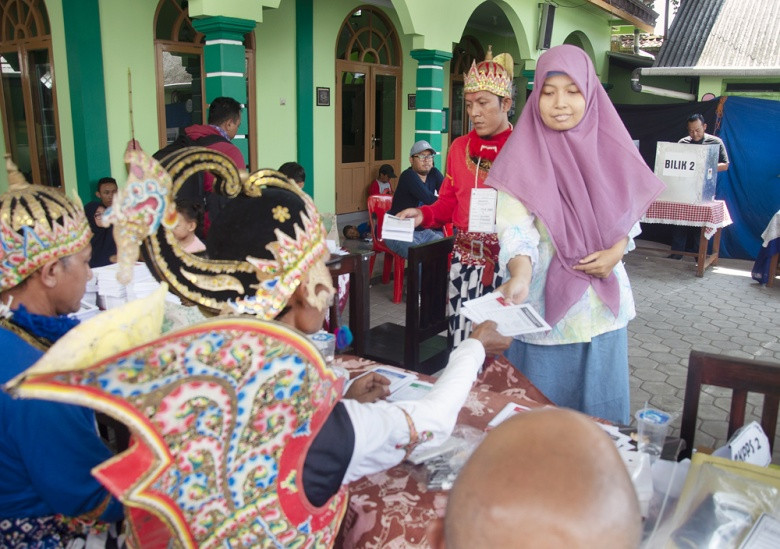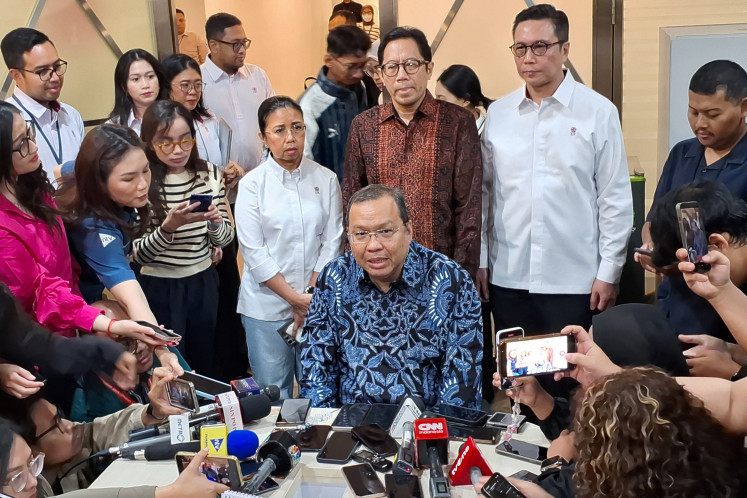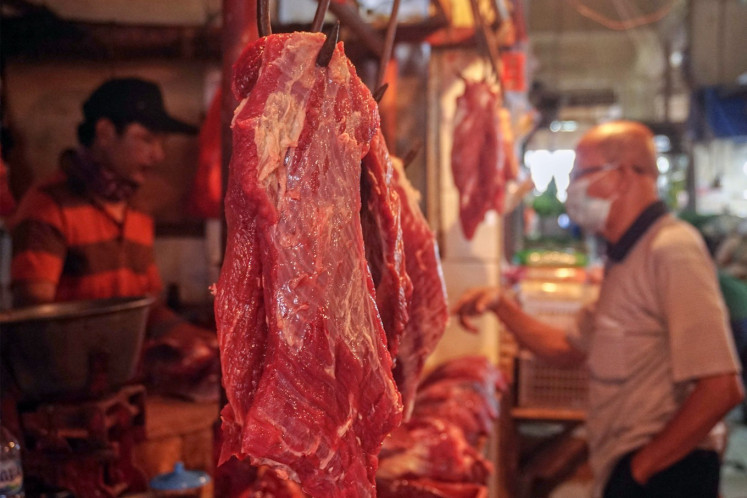Popular Reads
Top Results
Can't find what you're looking for?
View all search resultsPopular Reads
Top Results
Can't find what you're looking for?
View all search resultsA date with democracy
Our elections are far from perfect, with oligarchic constraints and vote-buying still depriving us of truly fair and open elections, but a peaceful and periodic election is still the backbone of our democracy.
Change text size
Gift Premium Articles
to Anyone
A
fter months of delay and protracted deliberation, the government, the House of Representatives and the General Elections Commission (KPU) have finally decided that the next presidential and legislative election will be held on Feb. 14, 2024.
In the past, the announcement of an election date was hardly headline-worthy. It was a technical detail that meant little for democracy. But the recent decision has caught the media’s attention, not because the date coincides with Valentine’s Day, but because it has finally ended the wild speculation that there would not be any election at all in 2024.
Soon after the pandemic hit the country a few months into President Joko “Jokowi” Widodo’s second term, speculation was rife that the former Jakarta governor, who had managed to consolidate his power by securing the support of more than 70 percent of the House, would seek to extend his time in office.
One imagined plan was that Jokowi would delay the election until 2027, extending his term by three years, to allow him to finish his pet projects – including the relocation of the nation’s capital to East Kalimantan – which had been severely disrupted by the prolonged pandemic.
The President repeatedly refuted this speculation, calling it a “a slap in his face” and reiterating his commitment to democracy. His strongly worded denials, however, failed to put an end to the chatter, with some of his supporters and detractors still floating the idea – or accusation – that the President would not leave office in 2024.
Now that the date of the general election has been set, this notional discussion should be put to rest. A new president will be elected before Jokowi ends his term.
To arrive at the ultimate date, the executive softened its position that the general election should be held on May 15, 2024. It had claimed that an earlier date would distract the government from efforts to address the pandemic and its economic fallout. But the KPU opposed this proposal, saying the date was too close to the nationwide regional elections, which will be held concurrently in November 2024.
It is true that politics is fluid and unpredictable. Jokowi may be able to run for office again if the political parties agree to amend the 1945 Constitution and scrap the presidential term limit. But all things considered, the likelihood of that happening remains slim.
We cannot stress enough how important it is for Indonesia to enforce the presidential term limit, considering our authoritarian history. Our elections are far from perfect, with oligarchic constraints and vote-buying still depriving us of truly fair and open elections, but a peaceful and periodic election is still the backbone of our democracy.
With the polling date now set, the KPU can begin preparing for that pivotal periodic event, where Indonesians exercise their right to choose who leads and represents them. So mark your calendar. On Valentine’s Day 2024, we have a date with democracy.











